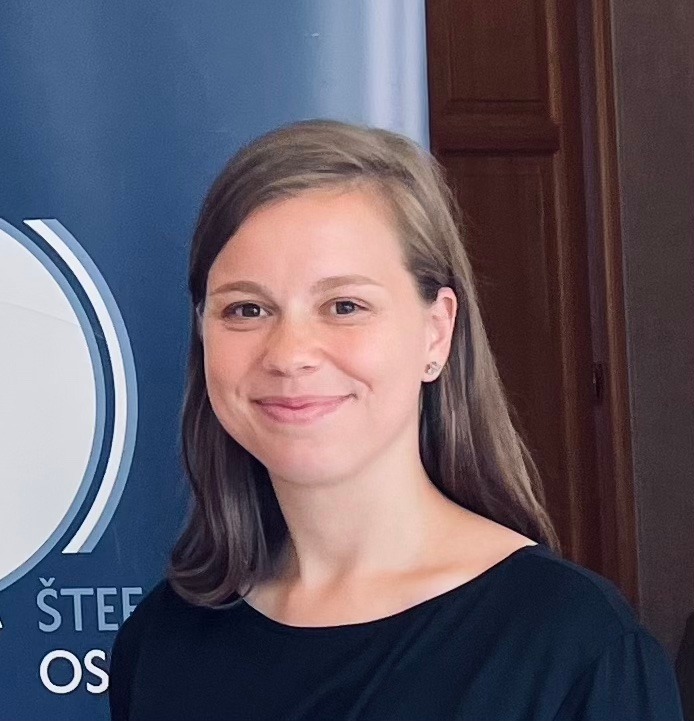Welcome to the 55th issue of the CEEasia Briefing.
In this issue, we dissect the following topics:
- Orban’s visit to Beijing
- China-Belarus military drills
- South Korea wins the Dukovany nuclear tender
- Modi in Moscow
If you like what you see, please forward this message to your friends and colleagues who can subscribe here.
Do you need to know more about East Asia? Don’t hesitate to shoot us a message about custom analysis tailored to your needs.
1. Orban’s trip to Beijing
What’s going on? Shortly after his trips to both Kyiv and Moscow, Hungarian Prime Minister Viktor Orban visited Beijing at the beginning of July for what he termed “Peace mission 3.0.” With the Russian war in Ukraine being the main talking point during these visits, Hungary is wasting no time in trying to make security (and its role in negotiating the end to the war) the main concern of its Presidency of the Council of the European Union.
Going deeper… All three visits came without coordination with the rest of the EU and were quickly rebuked by other European leaders, who stressed that Orban did not receive a mandate from the Council for his negotiations in Moscow and Beijing. The latter saw him praising China’s controversial peace plan. And, although Budapest confirmed that the trips were undertaken as part of bilateral diplomacy between Hungary and the respective states, the timing of these trips and the use of the logo of the Hungarian Council Presidency prompted accusations of Hungary’s abuse of power. This was followed by a decision to boycott the events and meetings organized by the Hungarian Presidency by several member states as well as the European Commission.
On a bilateral level… Hungary and China have been strengthening their cooperation in not just economic but also security domains. In February this year, the two countries signed an agreement on cooperation in judicial and security matters, including in law enforcement. This was followed by an upgrade of their bilateral ties to an All-Weather Comprehensive Strategic Partnership for the New Era, which confirmed Hungary’s support for China’s Global Development, Global Security and Global Civilization Initiatives; all aimed at increasing Beijing’s discourse power and role in conflict resolution on a global stage. Several commercial agreements were also signed between Chinese and Hungarian companies, prompting further security concerns. For example, the Chinese company Rizhao Wohe Aviation Service has ordered 50 fusion-powered planes from the Hungarian company Magnus Aircraft, with the latter announcing its plans to start a construction of its first manufacturing base in China. This is noteworthy as nuclear fusion is emerging as the next frontier in the great power rivalry between the US and China.
This means… Hungary’s support for China’s peace plan is indicative of the two countries’ mutual support for their respective mediating roles in conflict resolution. Indeed, Hungary has been portraying itself as one of the few countries that can talk to both sides (i.e., both Russia and Ukraine in case of the EU). And, although Orban has since tried to de-escalate the EU-wide diplomatic spats prompted by his visits to Moscow and Beijing, several member states have questioned the EU’s decision to boycott the Hungarian Presidency in the first place. The existing lack of unity within the EU may thus allow Orban to push for both Hungary’s and China’s security agendas, further dividing the bloc’s position on China.
2. China-Belarus military drills
What’s going on? In July, China and Belarus conducted an 11-day joint military exercise at a base near Brest (Belarus), close to the Belarus-Polish border. The military drills, described by officials as “anti-terrorist training aimed at night landings, overcoming water obstacles, and urban operations,” coincided with the NATO summit in Washington and followed Belarus’ accession to the Shanghai Cooperation Organization (SCO) as its 10th member.
Going deeper… This exercise, named The Eagle Assault 2024, involved over 100 Chinese troops. According to the Chinese Ministry of Defense, it aimed to foster practical cooperation between personnel of the two countries and allow Chinese troops to learn how to utilize Belarusian technology and weapon systems. Despite Belarusian officials framing the drills as a response to “the West’s aggressive policies” and “Ukrainian provocations”, this military training was not the first of its kind. In 2018, the special operations forces of these countries engaged in joint training in Jinan City, China, to enhance professional skills and counter-terrorism tactics.
Furthermore… The joint military exercises are not the only signs of deepening military and political collaboration between China and Belarus. During President Lukashenko’s two visits to China in 2023, the two countries outlined a new plan for developing their “all-weather comprehensive strategic partnership”. President Lukashenko also met with his Chinese counterpart, Xi Jinping, on the sidelines of the SCO. Shortly after the SCO summit, Belarus’ new Foreign Minister, Maksim Ryzhenkov, met with Wang Yi, expressing gratitude for China’s support in Belarus’ accession to the SCO and reaffirming the commitment to its partnership with China. Additionally, a delegation from China’s Central Military Commission met with their Belarusian counterparts in Minsk to discuss “prospects for Belarusian-Chinese cooperation on military personnel training” and identify new areas for collaboration.
This means… Belarus’ accession to the SCO as the only European member, the joint military drills, and their shared stances on Russia’s war in Ukraine undoubtedly indicate a strengthening alliance between China and Belarus. These developments also underscore a change in Chinese foreign policy, with China aiming to expand its influence in Eastern Europe.
3. South Korea wins the Dukovany nuclear tender
What’s going on? South Korean semi-state company KHNP (Korea Hydro and Nuclear Power Company) won the biggest-ever public procurement in the history of the Czech Republic. It will construct two new blocks of the Dukovany nuclear power plant in southern Czechia with an option to build two more blocks in Temelín later.
KHNP thus defeated the French state-owned energy company EDF (Electricity of France). The contract is expected to be signed in March 2025 with the trial operation beginning in 2036.
Going deeper… Since 2016, when the bidding officially started, four companies have delivered their offers: American Westinghouse, French EDF, Korean KHNP, and Russian Rosatom.
However, after the revelations of possible Russian involvement in the explosion of the ammunition storage in Vrbětice in 2021, Rosatom was excluded from the public offering. Later, in January 2024, Westinghouse’s bid was rejected, as it did not meet the stated requirements.
South Korea’s offer… KHNP submitted its first bid in November 2022, offering a modified version of its APR1000 reactor, specifically designed for the European Utility Requirements (EUR). The Czech government finally picked KHNP’s offer mainly thanks to a lower price and a price cut of about 20% in case the 2 blocks were constructed at once. Although the final price is yet to be agreed, one block should cost around CZK 200 billion.
However, KHNP is currently involved in litigation proceedings with the American company Westinghouse, which was involved in the development of the reactor offered by KHNP. If the Korean side loses the litigation, it risks a high financial penalty or construction delays.
This means… Regardless of the risks, analysts say a project of this size could represent a new impulse for the Czech energy industry as well as for the economy as a whole. KHNP reportedly promised that up to 60% of the project suppliers could be Czech companies.
Moreover, the second block of Dukovany could potentially be financed by a loan from the Korean Export-Import Bank, which could give the Czech government more favorable loan terms and deepen Czech-Korean mutual ties even further.
Potential in Slovakia… This May, Slovakia’s government also approved a plan to build one more nuclear reactor in Jaslovské Bounce power plant in western Slovakia. Shortly after the decision, Slovakia’s Minister of Foreign Affairs Juraj Blanár visited Cho Tae-yul, his counterpart in Seoul, to discuss the elevation of mutual relations between the two countries to a strategic partnership. The partnership could lead to strengthened cooperation in the energy sector as well.
4. Modi in Moscow
What’s going on? Indian Prime Minister Narendra Modi paid a two-day visit to Moscow to meet Russian President Vladimir Putin at the beginning of July. The visit came amid the NATO summit in Washington, during which the Russian aggression against Ukraine, material support for Kyiv, and increased pressure on Russia were key topics.
Going deeper… Although the timing of the visit was unfortunate, due to the fact that just hours earlier Russia killed dozens of people in Ukraine during bombing that also targeted children’s hospital, the Kremlin visit was only one part of Modi’s foreign trip. The second part consisted of the visit to Austria, which was the first visit of any Indian Prime Minister to Austria in more than 40 years. Modi’s visit to Russia has, nevertheless, marked his first such trip to the Kremlin since 2019 and the second foreign visit since assuming PM’s office for the third consecutive term. Even though India keeps the line of communication open and active also with Ukraine, the visit is emblematic of continuum in India’s multi-alignment foreign policy, which has been accompanied by the lack of criticism toward Russia and its aggression against Ukraine.
This means… An eye should be kept on India-Russia relations, however, at the same time Modi’s visit should be placed in a wider context. There are several reasons for the visit to Kremlin, which concerned not only cooperation and trade in strategic areas, but also issues that are sensitive for the Indian side – such as the imbalance in mutual trade, repatriation of Indian citizens who were recruited into the Russian army, and balancing Chinese influence in Russia and Russia’s dependence on China in the current geopolitical setting. And despite Modi’s Kremlin visit, cooperation with Western countries across many issues remains crucial for Delhi.
Quick takes on CEEasia developments
CHINA | China and Poland inked an action plan at the end of June to deepen their comprehensive strategic partnership, namely in people-to-people and cultural exchanges. The next day, China extended its visa-free policy to Poland until December 31st 2025, allowing Polish citizens to enter and stay in China visa-free for up to 15 days.
CHINA | Yu Jiang, China’s special envoy for cooperation between China and CEE countries (i.e. format 14+1), led a delegation on a visit to Slovakia at the beginning of July. Yu was received by Rastislav Chovanec, state secretary of Slovak Foreign Ministry, and the two sides reiterated shared interest in deepening bilateral trade relations and confirmed the visit by Slovak Prime Minister Fico to China in the autumn this year.
CHINA | China criticized the European Union following its statement marking the 8th anniversary of the 2016 Permanent Court of Arbitration ruling on the South China Sea. China accused the EU of ignoring historical facts and supporting the Philippines’ alleged violation of Chinese sovereignty. The Chinese Foreign Ministry described the ruling, which favored the Philippines, as a “political farce in legal garb” orchestrated by Western states to undermine China.
JAPAN | During the visit of Japanese Prime Minister Fumio Kishida to Berlin in mid-July, Japan and Germany agreed to boost security cooperation in the Indo-Pacific. PM Kishida and his German counterpart, Olaf Scholz, further confirmed establishing an economic security framework amid fears of China’s overproduction of electric vehicles and other heavily subsidized products.
JAPAN | Japan is further committed to supporting Ukraine by not only providing a $3.3 billion loan as part of the G7’s $50 billion support package but also by enhancing Ukraine’s domestic laws and regulations. The Japanese Ministry of Justice plans to provide assistance aimed at supporting Ukraine’s reconstruction efforts, advancing its negotiations for EU membership, and creating a favorable environment for Japanese companies to invest in the country.
VIETNAM | The Slovak government agreed to include the Vietnamese community living in Slovakia into the funding scheme of the Fund to support the culture of national minorities. This move is a reaction to last year’s government resolution to recognise the Vietnamese community as a national minority. The Vietnamese community, however, won’t be able to use the funds at least until next year.
VIETNAM | During a meeting with the ambassador of the Socialist Republic of Vietnam in Czech Republic, Duong Hoai Nam, Czech company Mega a.s. expressed its interest in cooperation with Vietnamese companies on water treatment issues in Vietnam. According to the company’s leadership, joint projects could help Vietnam get access to advanced technology related to environmental protection.
The article was updated on 19 August 2024. The earlier version incorrectly stated that planes ordered by Hungary from Rizhao Whose Aviation Service were nuclear-powered.












